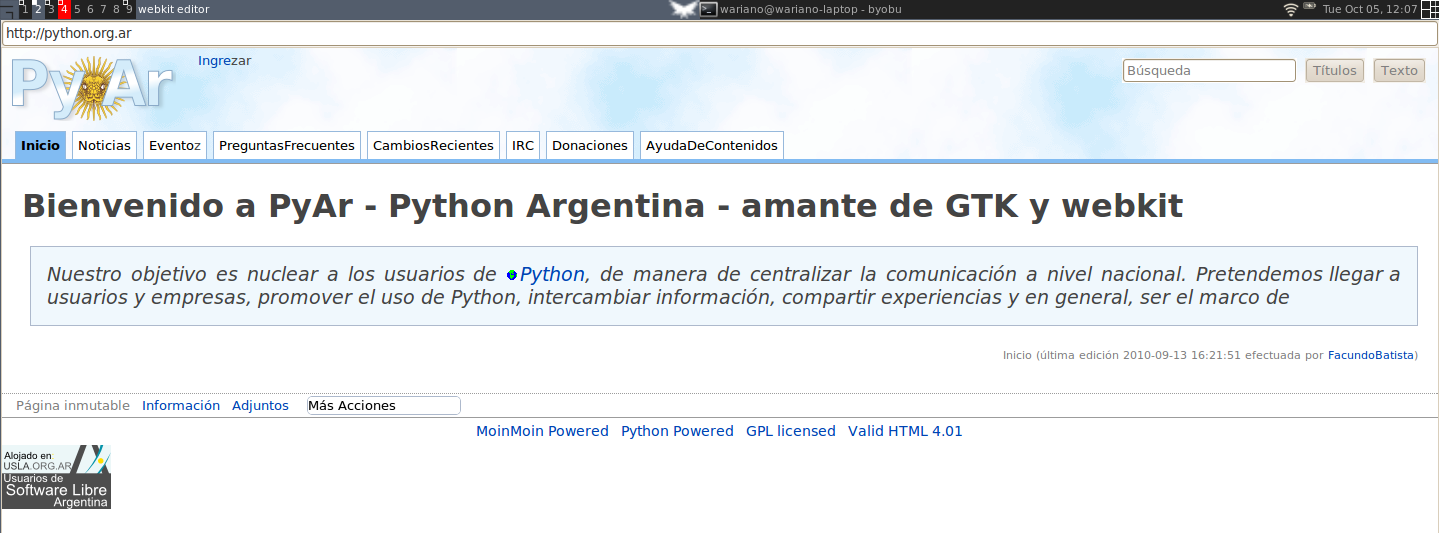Ejemplo de cómo usar webkit para editar páginas HTML como si fuera un editor.
Para probarlo correlo, entra una dirección que empiece con http://, hace foco en alguna parte de la página y ponete a tipear como si fuera un editor de texto común.
Un ejemplo de su uso (tarea del autor encontrar los cambios 😉).

import gtk import webkit class Editor(webkit.WebView): '''a webkit editor''' def __init__(self): webkit.WebView.__init__(self) self.set_editable(True) class EditorWindow(gtk.Window): '''the editor window''' def __init__(self): gtk.Window.__init__(self) self.set_title("webkit editor") self.set_default_size(800, 600) self.entry = gtk.Entry() self.entry.set_text("http://webkit.org") self.entry.connect('activate', self._on_entry_activate) self.editor = Editor() scroll = gtk.ScrolledWindow() scroll.set_policy(gtk.POLICY_AUTOMATIC, gtk.POLICY_AUTOMATIC) scroll.set_shadow_type(gtk.SHADOW_IN) scroll.add(self.editor) vbox = gtk.VBox() vbox.pack_start(self.entry, False) vbox.pack_start(scroll) self.add(vbox) vbox.show_all() def load(self, url): '''load the given url in the editor and set it to editable''' self.editor.open(url) def _on_entry_activate(self, entry): '''callback called when the user hits enter on the entry''' self.load(entry.get_text()) if __name__ == '__main__': window = EditorWindow() window.show() window.entry.activate() gtk.main()
Tengan en cuenta que en Ubuntu inferior 10.04 python-webkit en gtk nececita SI o SI llamar a "gtk.gdk.threads_init()", sino tira error:
Entonces deberán agregar un "gtk.gdk.threads_init()" antes de llamar a "EditorWindow_()". El final del código les quedará de la siguiente manera: